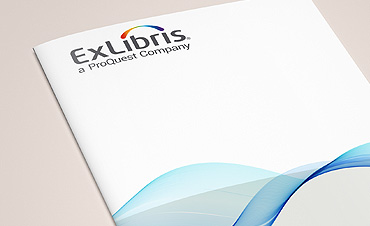June 27, 2008
More than 70 customer-requested enhancements, including expanded search options and an improved public interface, complement the contemporary Voyager 7.0 design
Chicago, Il – June 27, 2008. Ex Libris™ Group today announced the general release of version 7.0 of the Company’s Voyager® integrated library system (ILS). More than 70 customer-requested enhancements, implemented as the result of feedback from usability studies, focus groups, and an
online user survey, focus on the staff and end-user experience.
Version 7.0 builds on two ongoing Voyager objectives—ease of use and increased functionality for library staff. Highlights include:
- Voyager 7.0 features a newly designed WebVoyage OPAC with a modern, easy-to-use layout. An intuitive search model, offering a range of basic and advanced search options, responds to ever-increasing user expectations for attaining valuable library results quickly and efficiently.
- A wide range of accessibility and usability enhancements, designed to comply with the W3C Web Content Accessibility Guidelines and national regulatory requirements, have been integrated into this product version. During the Voyager 7.0 development cycle, Ex Libris developers worked closely with the Consortium of Academic and Research Libraries in Illinois (CARLI) and the University of Illinois at Urbana-Champaign (UIUC), as part of the Illinois Board of Higher Education Web Accessibility Consortium, to ensure that the newly redesigned WebVoyage system would meet the needs of users with disabilities, without sacrificing any functionality.
- Voyager 7.0 contains more than 40 administrative enhancements, including improved functionality for maintaining catalog records and a wider range of options for updating and editing serials and acquisitions data. Library staff will enjoy greater flexibility in customizing search and navigation functions to suit the specific needs of their institutions.
”We are looking forward to working with Voyager 7.0,” comments Laura Guy, systems librarian at Arthur Lakes Library, at the Colorado School of Mines. ”Having participated in field testing for this product version, we felt that Ex Libris developers were attuned to our needs and those of our fellow testers. Our library staff members are enthusiastic about the new customization options and enhanced administrative functions offered in this version of Voyager. Library end users will definitely welcome the new look and added functionality of the WebVoyage OPAC.”
”It was very important for us to revitalize the look and feel of WebVoyage and to deliver this new design, which was developed based on user feedback and librarian requests,” explains Mike Dicus, Voyager product manager. ”Enhancements such as expanded search options for library staff and end users and new overlay and merge capabilities illustrate our commitment to increasing Voyager user productivity. We are pleased to have been able to deliver so many more user requests in this product version than we initially expected to.”
”Ex Libris collaborates closely with representative institutions of the Voyager user community, currently over 1300 in number, to ensure that their evolving library needs will continue to be met in versions 8, 9, and beyond,” adds Matti Shem Tov, president and CEO of Ex Libris. “Our product management team and the Voyager product working group are already at work prioritizing enhancements to take Voyager into the future.”
About Ex Libris:
Ex Libris is a leading provider of automation solutions for academic libraries. Offering the only comprehensive product suite for electronic, digital, and print materials, Ex Libris provides efficient, user-friendly products that serve the needs of libraries today and will enable them to transition into the future. Ex Libris maintains an impressive customer base consisting of thousands of sites in more than 70 countries on six continents.
Dedicated to developing creative solutions in close collaboration with its customers, Ex Libris enables academic, national, and research libraries to maximize productivity and efficiency and, at the same time, greatly enhance the user experience. By empowering users to discover and obtain the information they need, libraries ensure their position as the bridge to knowledge. For additional information on Ex Libris Group, see https://exlibrisgroup.com/




